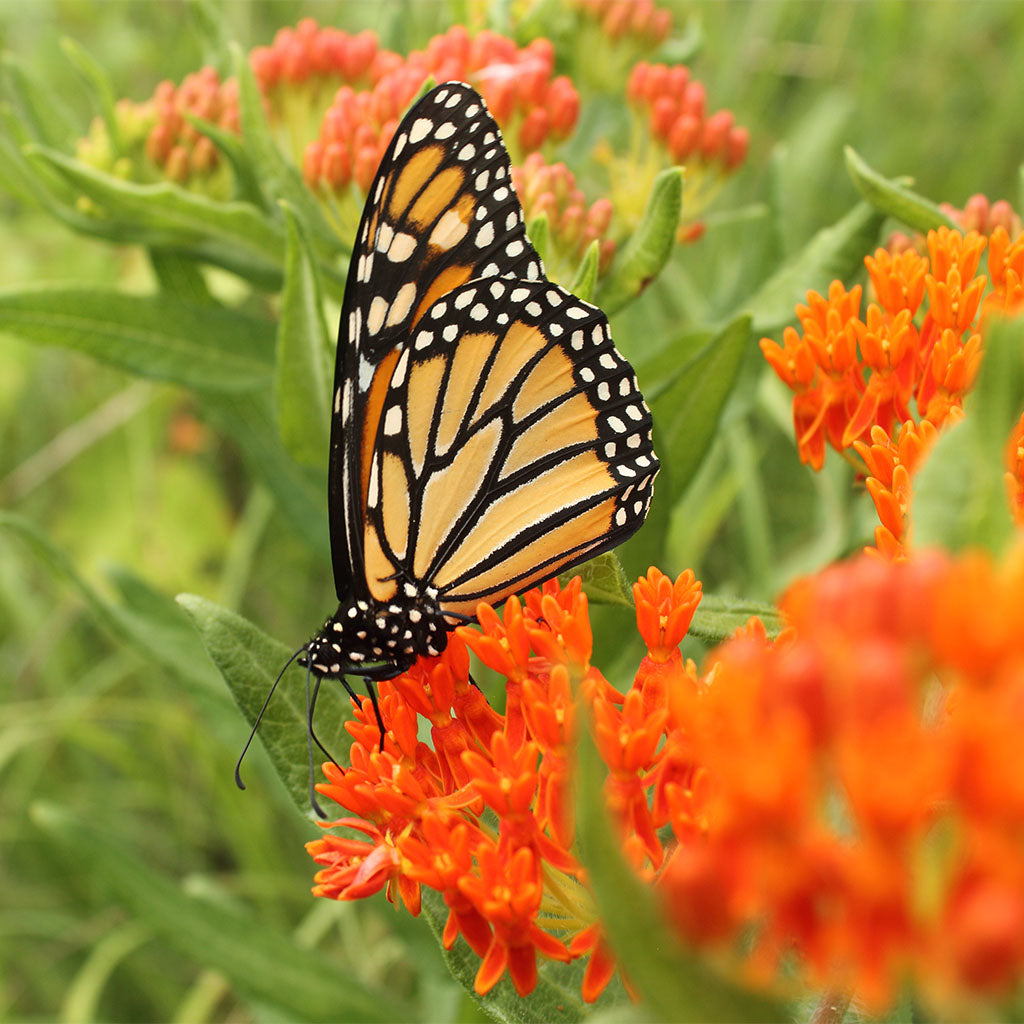Have you joined the composting movement? Let our corn-derived, biodegradable cellophane inspire you to start a practice that can nourish your garden and make our planet a healthier place!
 What is composting?
What is composting?
Composting is the process of decomposing organic matter into fertilizer for soil and plants. It can be done in large facilities, in community systems, and even at home!
 Why is compost useful?
Why is compost useful?
Compost benefits your garden and the environment! Compost enriches soil by adding nutrients that plants use for growth and photosynthesis. It also helps soil retain moisture, and keeps plant diseases and pests at bay. If you’re building a butterfly garden this spring to #FlutterForChange, compost can improve soil structure and give your plants the best chance of success.
Composting also helps the environment by reducing waste and our reliance on limited resources. Food scraps and yard waste currently make up more than 30% of what we throw away; if we compost these instead, we can reduce the amount of waste sent to landfills, minimize the methane emissions created there, and lower our carbon footprint. Plus, compost’s soil-enhancing power means you can reduce the amount of water needed in your garden!
 Is cellophane compostable?
Is cellophane compostable?
True cellophane is compostable! The “cello” in “cellophane” actually stands for “cellulose” which is the structural component of plants. Cellophane can be made from a variety of plant-based sources, like wood, cotton, and, in our case, corn. However, a lot of the cellophane you’ll find has been treated with extra ingredients or coatings that improve its durability and water-resistance but mean it’s no longer biodegradable. Our cellophane remains biodegradable!
 How can I start composting at home?
How can I start composting at home?
Compost is made from three main ingredients: browns (like twigs and dead leaves), greens (like grass clippings and vegetable scraps), and water. Inside these categories, it’s important to know what you can and cannot compost. Fruits, vegetables, tea bags, paper, cardboard, and yard trimmings can all be composted. Things like dairy products, meat, and fish cannot.
From there, there are many different ways to start making compost. One way that’s accessible to people who don’t have a garden is indoor composting! The easiest way to indoor compost is with a worm bin, but if playing host to worms isn’t your style, you can still get on board—you’ll just need to take a little extra care monitoring your work. Grab a plastic bin or bucket, drill some aeration holes in the lid, and start adding your green and brown items! Add some water when things are looking a little dry, or some brown items when the pile appears soggy. Use a shovel or hand trowel to turn the contents of your compost bin regularly. In about two to five weeks you should have compost that’s ready to use, whether that’s in your garden, a friend’s, or your community’s.
If you don’t have a need for compost at home, you can still benefit the environment (and other gardens) by participating in a community composting program. Research ones in your area or create your own!






